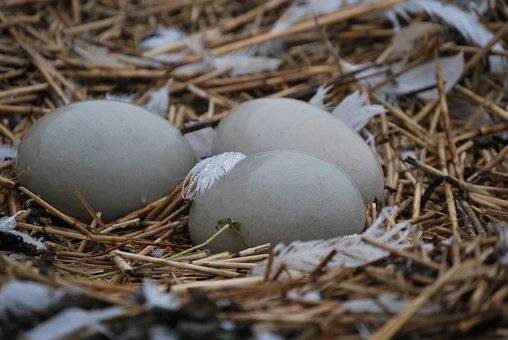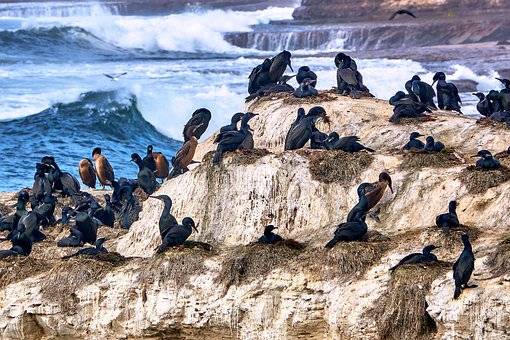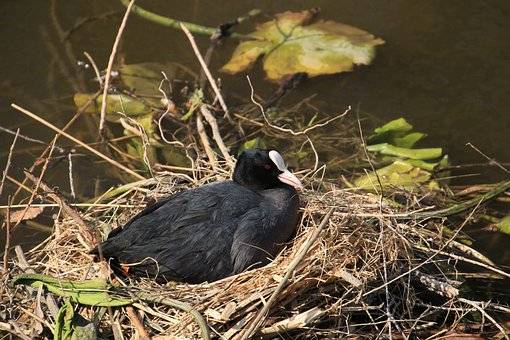Global climate change is a matter of concern for our ecosystem. Past decades have accustomed the world to modern-day environmental hazards, with species susceptible to multiple physiological and habitual changes. As per records, animals and birds are drastically declining in their population. And out of all the reasons, researchers and animal conservationists suspect it to be climate change. Conditions like deforestation, forest fires, frequent storms, and a temperature rise are the prime reasons identified so far. And it is not just a statement. The research team has its propositions proving every other claim.
Global Climate Change And Seabird Breeding Failures In Antarctica
The team went forward, noting the customary activities of two bird species (Antarctic petrel and polar skua) in the Svarthamaren region in Antarctica. As a pre-condition of the research, it was evident that these birds lay in their eggs at the beginning of every new year. Astonishingly, the situation was quite different for December 2021 and January 2022. The quantity of petrel nests was almost non-existential, while skua nests were absolutely out of sight.

This did trigger a series of questions among the research team, and they went on seeking further answers. They found unusual climatic conditions coinciding with the birds’ breeding season. Jutulsessen, Maïtri, Svarthamaren, and Princess Elisabeth are the four areas under monitoring that have received more snowfall than the preceding year. And because most of these birds lay their eggs on the ground, it became more difficult for them to continue with a similar process when covered in snow. The research team further concluded even if one had managed to create their nest and lay eggs, the energy lost to protect these nests from recurring storms diminished the ability of these birds to continue with the breeding process.
Global Climate Change And Early Breeding Among Birds
Change comes with its own set of effects, and they can be both good and bad. It is all about acceptance and the ability to evolve oneself and survive through change. And that is what these tree swallows are undergoing at this moment. This also highlights that animals solely dependent on food which might change with changing climate, are more at risk.

A study program organized by Cornell University and the Max Planck Institute of Animal Behavior found that Tree swallows have been advancing their breeding behavior by three days for the past three decades. This further leads to the early hatching of offspring and the shortage of food (flying insects) on which they rely.
Upon connecting the dots, the researchers did conclude that unusually warm springs are creating a shortage of flying insects. That way, for the birds feeding on them, it is a feast for one day and famine the next.
Interesting Facts On Climate Change And The Breeding Habits Of Birds
- Over time, the breeding habits of individual bird species have undergone a noticeable change, with global warming being the top influencing factor. A Finnish Museum of Natural History coordinated study does prove that from 1975 to 2017, the breeding window has been getting shorter by 1.7 days for 73 bird species. While on the other hand, the temperature of Finland has risen by 0.8 degrees Celsius.
- Climate change is affecting the overall breeding duration among birds.

- 79% of birds lay eggs earlier during warmer years. As per recent studies, birds advance their egg-laying dates by an average of 0.13 days yearly.
- Also, another research found that multi-brooded species increased their breeding season’s duration by 0.43 days per year(-1), while single-brooded species are 0.44 days per year(-1) less.
- Lesser kestrels do breed in a time that has an abundance of grasshoppers. However, extremist climatic situations like drought can induce food shortages. Thus affecting overall reproductive success.
- Also, further studies reveal that extreme weather conditions during the laying period and prior days of nestling significantly affect the offspring’s size.
As humans, we are blessed with the ability to mostly control and change situations that no longer serve our purpose. However, it is not the same for animals, birds, and other organisms, part of the ecosystem. Looking into the past, each wave of mass extinction has led to eliminating of certain species. And the research studies compiled here predict more names to join that list. So as humans, the least we can do is abide by eco-friendly measures and slow down the adverse effects.



